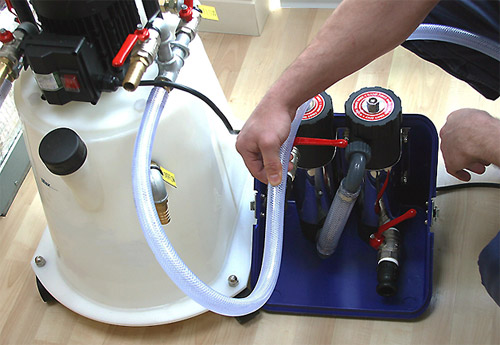When it comes to keeping your home warm and comfortable, your boiler is your trusty companion. But like any faithful friend, it requires proper care and attention. And that’s where gas safety certificates come into play. In this comprehensive guide, we’ll explore everything you need to know about gas safety certificates for safe boiler installation, repair, and maintenance services.
The Importance of Gas Safety Certificate
Why is Gas Safety Crucial?
Imagine this scenario: a cozy winter evening, the fireplace glowing, and your boiler working tirelessly to keep you warm. But have you ever considered the potential risks lurking behind the scenes? Gas leaks, faulty installations, or worn-out components can turn your comfort zone into a disaster waiting to happen.
Gas is a safe and convenient fuel, but it is also a dangerous one if not handled properly. Gas leaks can lead to carbon monoxide poisoning, which is a silent and deadly killer.
Gas Safety Certificates help to ensure that your gas appliances and pipework are safe and that you are not at risk of carbon monoxide poisoning.
The Role of Gas Safety Certificates
A gas safety certificate is your shield against potential disasters. It’s a legal requirement in many countries to ensure that your gas appliances are installed, repaired, and maintained safely. This certificate serves as a testament to your boiler’s health, giving you peace of mind.
Understanding Gas Safety Regulations
What happens during Gas Safety Certificates inspection?
During Gas Safety Certificates inspection, the Gas Safe registered engineer will:
-
Visually inspect all gas appliances and pipework for any signs of damage or wear and tear.
-
Test all gas appliances to make sure that they are working properly and safely.
-
Check that all gas appliances are properly ventilated.
-
Issue a Gas Safety Certificate if all gas appliances and pipework are found to be safe.
What the Law Says
Gas safety regulations are not mere suggestions; they are laws meant to protect you and your loved ones. Understanding these regulations is crucial for every homeowner.
Key Regulations You Need to Know
- The Gas Safety (Installation and Use) Regulations
- Landlord Gas Safety Record
- The Health and Safety at Work Act
The Landlord’s Responsibility
Landlords, in particular, have a significant role to play. They must provide tenants with gas safety certificates, ensuring that their properties are safe. Failing to do so can lead to severe legal consequences.
Gas Safety in Boiler Installation
The Art of Installation
A well-done installation lays the foundation for a safe and efficient heating system. Gas engineers follow a series of steps to ensure your boiler is in good hands.
Finding the Right Engineer
Choosing the right engineer is as crucial as the installation itself. Look for Gas Safe registered professionals who possess the expertise to ensure a safe installation.
The Necessity of Regular Maintenance
A well-maintained boiler not only runs efficiently but also reduces the risk of accidents. Regular maintenance is the key to a long and happy life for your heating system.
The Checklist for Boiler Maintenance
- Annual service by a Gas Safe registered engineer
- Checking for gas leaks and carbon monoxide leaks
- Flue inspection
- Keeping an eye on water pressure
The Gas Safety Certificates Process
The Inspection
To obtain a gas safety certificate, a qualified engineer must inspect your gas appliances, including your boiler. They’ll assess the installation, the pipework, ventilation, and safety devices.
Documenting the Findings
The engineer will record their findings on a gas safety certificate. This document is your assurance that your boiler is safe and compliant with all regulations.
The Validity Period
A gas safety certificate is valid for 12 months. After this period, you’ll need a new inspection and certification.
The Consequences of Ignoring Gas Safety
Failing to maintain your boiler and acquire gas safety certificates can have dire consequences. Gas leaks, carbon monoxide poisoning, and even explosions are potential risks.
Statistics Speak
According to a study, home accidents are attributed to neglected boiler maintenance. These accidents often lead to severe injuries or even fatalities.
The Final Word
Ensuring the safety of your boiler through gas safety certificates is not an option; it’s a responsibility. It’s a commitment to your family’s well-being and your property’s integrity.
Looking Ahead
As technology advances, so do safety standards. Stay informed, and be proactive in maintaining the safety of your heating system.
In conclusion, gas safety certificates are not just a legal requirement; it’s your assurance of a safe, warm, and cozy home. Take your time with your boiler. Invest in regular inspections and ensure that your heating system is in the best hands possible. After all, safety should always come first.
Remember, when you prioritize gas safety, you’re not just heating your home; you’re warming your heart with peace of mind.
So, get that gas safety certificate today and keep those chilly nights at bay!


